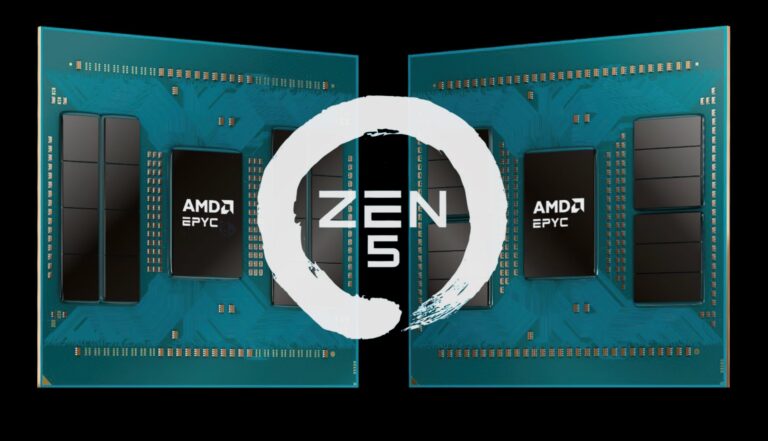AMD EPYC 9005 “Zen 5” CPUs use the Linux P-State driver to improve performance per watt compared to the previous generations.
AMD is moving forward from ACPI CPUFreq Linux driver to ACPI CPPC for better control of EPYC “Zen 5” CPUs
AMD has posted patches for Linux kernel that will now change how users would be able to control EPYC server parameters. Up until now, most EPYC families were using the ACPI CPUFreq Linux driver, which gives limited control over CPU power and performance management. With the latest update, the latest EPYC families can benefit greatly since it will enhance performance per watt for these high-performance chips used in data centers and similar CPU-oriented workloads.

As spotted by Phoronix, AMD has uploaded the patches, which will enable the AMD P-State driver for EPYC 9005 series, which will enable it to leverage the ACPI CPPC(Collaborative Performance Processor Control). This helps in achieving better control over power and performance states for the CPU cores.
Up until now EPYC processors have been using the generic ACPI CPUFreq driver, which is used across multiple architectures for managing CPU frequency scaling but lacks the capabilities of the P-State driver, which is already deployed for several mainstream Zen architectures. Since the release of Zen 2, AMD Ryzen processors, including Zen 3, Zen 4, and Zen 5 have been using the P-State driver for easier control over the CPU cores.
Fortunately, with AMD’s Family 1Ah aka EPYC 9005 processors, the P-State driver will be used with the upcoming Linux Kernel. Surprisingly, the EPYC 4004 processors are already using the P-State driver as these chips have similarities in design with mainstream Ryzen processors.

As per the conducted tests, it has been proved that the P-State driver in active mode with a performance governor can result in equivalent or higher performance per watt compared to the ACPI CPUFreq driver. The latest patches will also ensure that the EPYC processors don’t face any frequency throttle in power-limited systems with the P-State driver.
Nonetheless, AMD is also providing the feature to roll back to the ACPI CPUFreq driver with the “amd_pstate=disable” kernel command line to maintain flexibility. It’s expected that the patches will be included in the upcoming Linux Kernel 6.13 and will be carried forward to the future EPYC processors.
Go to source: wccftech.com
Discover more from Technical Master - Gadgets Reviews, Guides and Gaming News
Subscribe to get the latest posts sent to your email.








